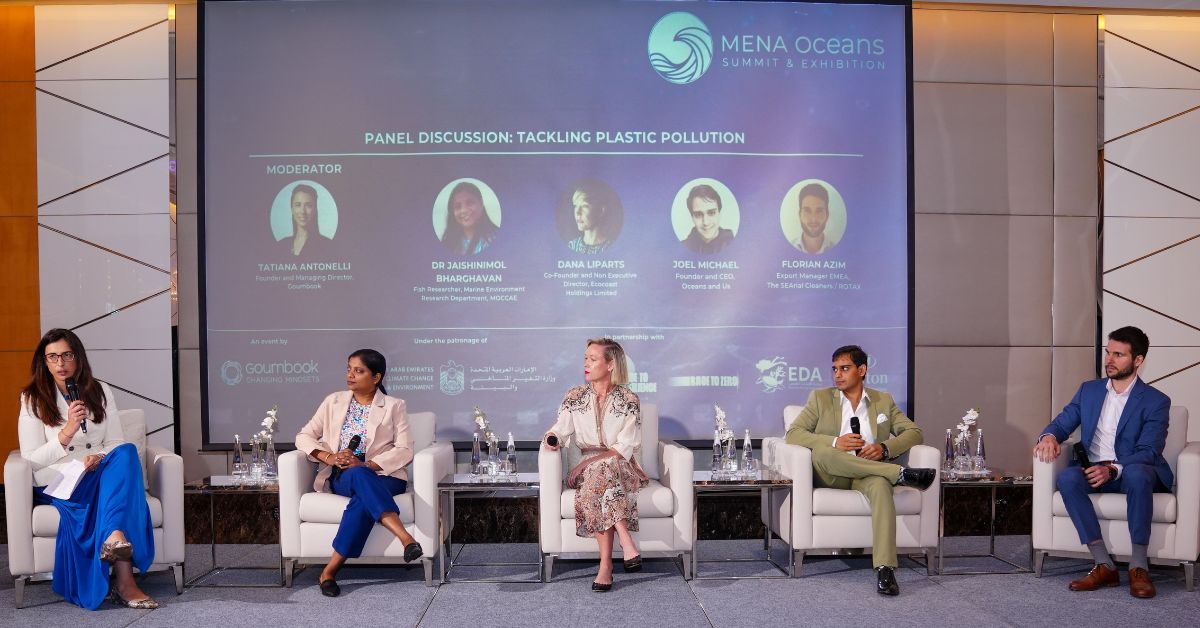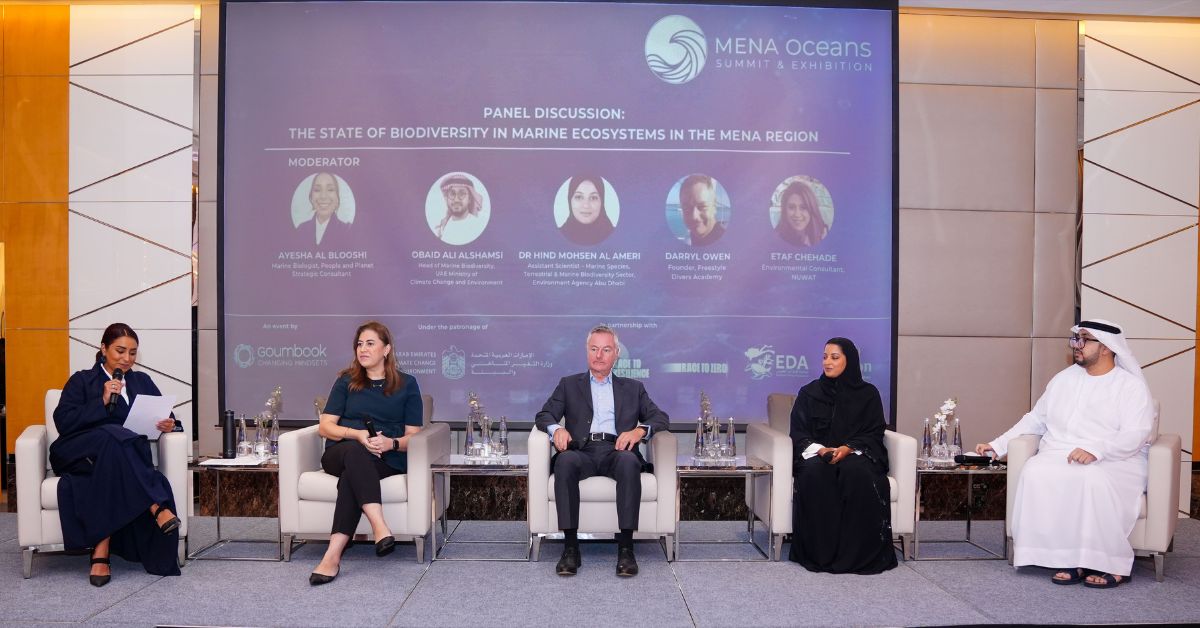DUBAI, UAE — The United Nations COP28 in Dubai saw the launch of many new initiatives, one of which was the establishment of the MENA Oceans Network. Formed in partnership with the UN-UAE Office, its goal is to tackle urgent ocean-related issues in the Middle East and North Africa (MENA) region.
The Network is strategically set up to facilitate knowledge sharing and implement on-the-ground actions. It emphasizes a cross-sectoral approach to sustainably manage marine environments and blue economies.
A key focus of the Network is to foster innovation and technology. It aims to be a hub that connects innovators with both financial and non-financial resources, particularly through nature-based solutions. This is especially pertinent considering the OECD’s projection that the ‘blue economy’ could reach a value of $3 trillion by 2030.
Tatiana Antonelli Abella, Founder and Managing Director of Goumbook, announced the Network’s creation, noting it as a multi-stakeholder initiative designed to bridge a significant systemic gap. This initiative aims to unify diverse regional stakeholders and facilitate progress towards Sustainable Development Goal 14 (SDG14).

In an interview with TRENDS on the sidelines of COP28, Tatiana discussed the motivations for forming the network and its critical role in leveraging technology to address these challenges.
She underscored the origins of the MENA Oceans Network, tracing it back to the inaugural MENA Oceans Summit, which occurred on World Oceans Day, June 8-9, 2023. Hosted under the patronage of the UAE Ministry of Climate Change & Environment, the summit convened over 550 stakeholders. Discussions focused on best practices and solutions for the region’s oceanic ecosystems.
Key themes included the necessity for continuous engagement, access to data, global and regional collaboration, equitable development, involving youth, and a unified effort to achieve SDG14 (life below water) by 2030. The MENA Oceans Network was officially launched at COP28, building on the summit’s momentum.
The MENA Oceans Network is set to undertake an ambitious plan to compile and make available data and scientific research. This effort aims to establish a baseline for monitoring progress toward Sustainable Development Goal 14 (SDG14). To enhance accessibility, this data, along with other digital resources, will be shared on a digital platform.
Key Stakeholders and Government Support
Tatiana details how the MENA Oceans Network functions as a multi-stakeholder entity, encouraging cooperation among various groups. These include relevant ministries, private sector companies, academic and research institutions, nonprofits, youth, and communities. The network has garnered support from the UN-UAE Resident Office and is actively engaging with different entities to form Founding Partners and an Advisory Committee. Tatiana stresses the critical need for commitment from relevant ministries to firmly establish the network within their respective countries.
Objectives of the MENA Oceans Network
The network’s primary goals center around preserving, restoring, and rehabilitating marine natural capital, spurring resources for a climate-resilient blue economy, raising awareness about ocean-related issues, and fostering equitable conservation and growth opportunities for vulnerable habitats and communities across the region. The network intends to utilize global roadmaps set forth at COP meetings, focusing particularly on COP28’s spotlight on ocean and nature-linked efforts.
Benefits and Synergies
Tatiana underscores the MENA Oceans Network’s unique opportunity to shape the collective voice of the sector and boost awareness among member companies, youth, and the broader community. The network seeks to dismantle silos, foster meaningful dialogue, and prioritize action through the creation of Working Groups. Members and partners stand to gain from synergies in data transparency, knowledge exchange, and policy harmonization at a regional level, all facilitated by a centralized digital platform.
Challenges and Mobilizing Support
Acknowledging the substantial efforts required for regional and cross-sectoral ocean initiatives, Tatiana recognizes the challenges in advocacy, securing buy-in, and the necessity for financial and non-financial resources. The MENA Oceans Network is reaching out for support from the public sector for policy and outreach initiatives, multilateral organizations with existing frameworks, and the private sector to mobilize funding for the initiative.

The MENA region hosts a variety of vital marine ecosystems, encompassing the Mediterranean Sea, the Red Sea, the Arabian Gulf, the Gulf of Oman, and the Indian Ocean. These waters are habitats to a rich diversity of marine life, including coral reefs, sea turtles, dugongs, dolphins, and whales. Additionally, the region features vital ecosystems such as mangrove forests, salt marshes, and seagrass beds.
“The region is also a significant commercial and maritime hub, with critical shipping lanes essential for global trade. Therefore, the MENA region can and must play a pivotal role in marine protection,” said Tatiana. This involves data sharing, policy regulation, and the promotion of sustainable blue economy frameworks that encourage better fishing practices, reduce pollution, and actively protect marine habitats. “It is with this mission that we are proud to launch the MENA Oceans Network, which will address critical challenges and bring together diverse stakeholders to take action for the oceans,” Tatiana added.
Conclusion
As the MENA Oceans Network takes the lead in addressing ocean-related challenges in the region, Tatiana Antonelli Abella emphasizes the necessity of collaborative, technology-driven solutions. The network’s inauguration at COP28 marks a significant move towards sustainable management of seas and blue economies.
Additionally, Goumbook’s wider initiatives, like the Indoor Air Quality Initiative, demonstrate a comprehensive approach to environmental conservation and human well-being. The MENA Oceans Network not only aims to protect and restore marine ecosystems but also serves as a model for regional cooperation and sustainable development, playing a vital role in the global effort to preserve our planet’s oceans.








